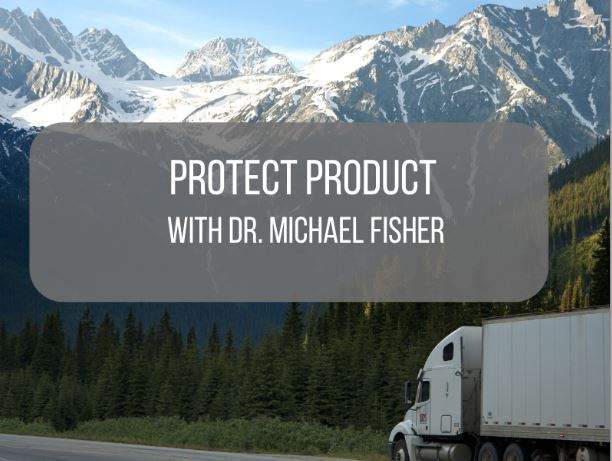
We are pleased that Dr. Michael Fisher has joined the FTCLDF website as a regular contributor. Dr. Fisher is a retired United States Department of Agriculture (USDA) Food Safety and Inspection Services (FSIS) veterinarian, bringing decades of experience enforcing FSIS regulations during the slaughter and processing of animals for which the USDA provides inspection services. Dr. Fisher is thrilled to bring you his expertise and guidance to help you navigate regulatory compliance. His goal is for small, USDA-inspected meat processors to succeed and to understand how to best maintain compliance and reduce regulatory issues.
Protect Product
My mother is Portuguese. At holidays she makes pão doce sweet bread and linguiça and rice. These foods are personal and family favorites. FSIS inspectors have personal favorites, too, and 9 Code of Federal Regulations (CFR) 416.4(d) is definitely one of them.
“Product must be protected from adulteration during processing, handling, storage, loading, and unloading at and during transportation from official establishments,” 9 CFR 416.4(d) states.
Prior to the October 1999 final rule, operational sanitation requirements were spread throughout the regulations. The primary focus of these requirements was the control of product temperature to reduce microbial growth. FSIS considers microbial growth indicative of insanitary conditions. The intent of 9 CFR 416.4(d) was to consolidate all operational sanitation requirements in a single regulation, eliminate unnecessarily prescriptive requirements, and provide establishments opportunity to innovate.
The new rule achieved the original intent. Absent prescriptive operational sanitation standards for the control of product temperature, establishments have found new methods to reduce microbial growth. However, the new rule is not limited to the control of product temperature. 9 CFR 416.4(d) is an FSIS inspector favorite because it captures any condition that an FSIS inspector deems insanitary; it supposedly defines noncompliance when no other regulatory basis for noncompliance can be found.
Noncompliance
How do you respond to an allegation of noncompliance based on a rule that appears to be so vague that it means whatever the FSIS inspector wants it to mean? You have to understand that 9 CFR 416.4(d) is not as vague as it appears.
The standard for most of 9 CFR 416 is “sufficient to prevent the creation of insanitary conditions” or “sufficient to prevent adulteration.” If the potential for insanitary conditions or adulteration exists; noncompliance exists because conditions are insufficient. The 9 CFR 416.4(d) standard is “product must be protected from adulteration.” If product is not actually adulterated, then it is protected, and 9 CFR 416.4(d) does not apply.
- 9 CFR 416.4(d) is limited to “product,” which is limited to articles of meat and poultry capable of use as human food. If the offending operational condition does not involve an article of meat and poultry capable of use as human food, then 9 CFR 416.4(d) does not apply.
- 9 CFR 416.4(d) noncompliance requires that product be “adulterated,” which requires that product be rendered injurious, unfit or unsafe. If the offending operational condition does not cause product to be injurious, unfit or unsafe, then 9 CFR 416.4(d) does not apply.
Should you receive a Noncompliance Record and the only regulation listed in Block 6 is 9 CFR 416.4(d), be slow in response. If the Block 10 narrative describes something other than a failure to control product temperature and reduce microbial growth or if it simply alleges the possibility of a problem, then you have probably protected product from adulteration.
Enjoy your holiday favorites.
As always, if you have a question, please use the Contact Us link and ask.
Did you miss Dr. Fisher’s previous posts?
YOUR FUND AT WORK
Services provided by FTCLDF go beyond legal representation for members in court cases.
Educational and policy work also provide an avenue for FTCLDF to build grassroots activism to create the most favorable regulatory climate possible. In addition to advising on bill language, FTCLDF supports favorable legislation via action alerts and social media outreach.
You can protect access to real foods from small farms by becoming a member or donating today.